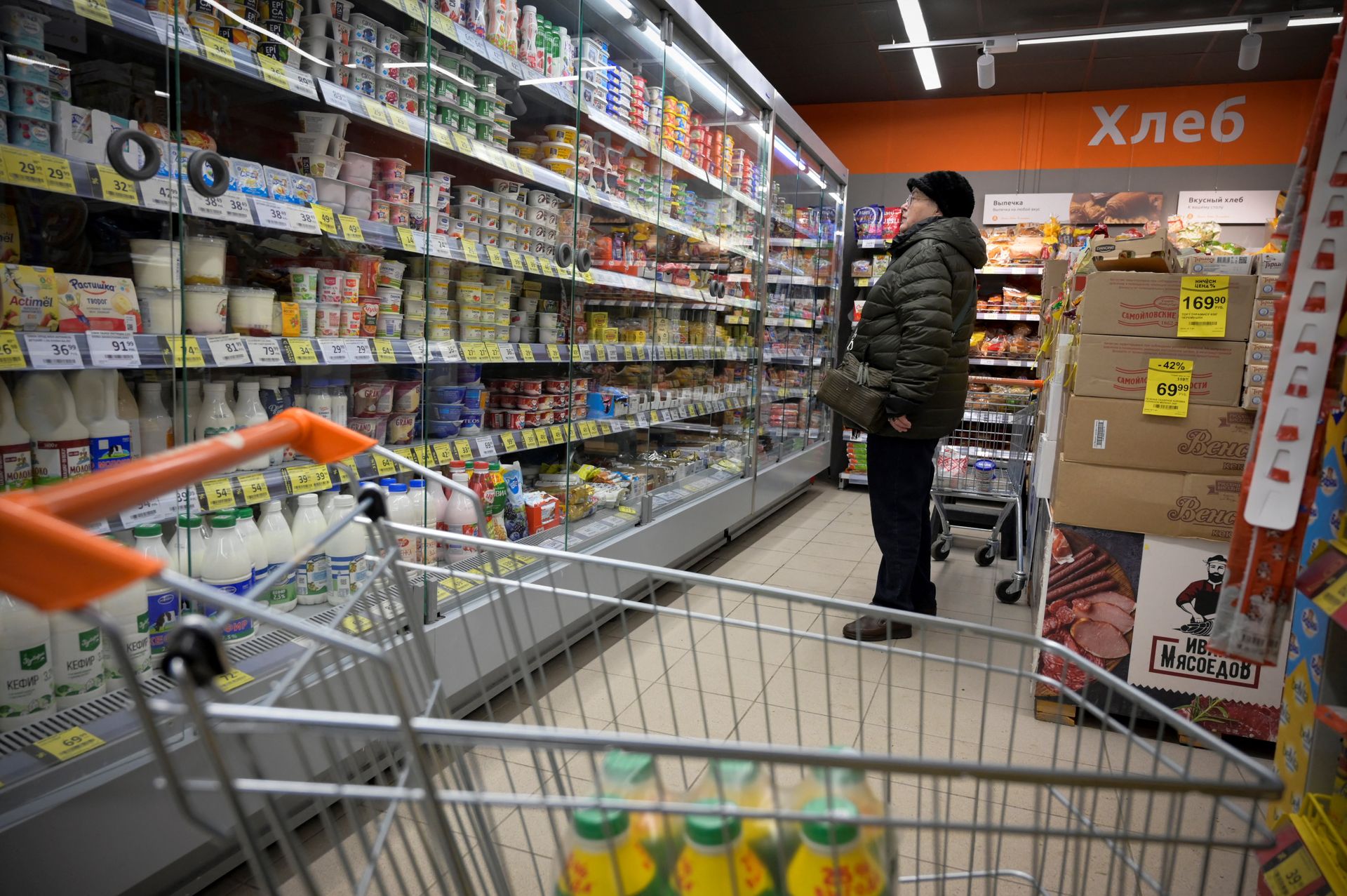Russian economy faces near-zero growth by end of 2025 as war-driven momentum fades, central bank warns

Russia's wartime economic growth is faltering, with the Russian Central Bank forecasting near-zero GDP expansion by the end of 2025, according to a report released on Aug. 6.
The slowdown reflects the limits of Russia's war-fueled expansion, driven by military spending at the expense of civilian investment and private consumption.
The Russian economy expanded by just 1.4% in the first quarter of 2025, a third of the pace seen in 2024. It slightly improved to 1.8% in the second quarter, but the Central Bank expects a slowdown to 1.6% in the third quarter, and between 0-1% in the final months of the year.
Annual growth is now projected to average between 1% and 2% in 2025, sinking further to 0.5% to 1.5% in 2026. By contrast, the global economy is forecast to expand by nearly 3%, with China growing by almost 5%.
The projection follows a broader downgrade from the International Monetary Fund, which cut its 2025 growth estimate for Russia to 0.9%, down from 4.3% in 2024.
Growth is expected to remain sluggish at 1% in 2026 — the steepest downgrade among major economies in the IMF's latest global outlook.
The Kremlin raised defense spending to 6% of GDP in 2025, its highest level since the Cold War. Civilian industries face increasing shortages of capital and labor, worsened by battlefield losses and an ongoing campaign to recruit contract soldiers, who receive huge sums compared to the average Russian salary.
Central Bank Governor Elvira Nabiullina warned in June that the economy had reached "the edge of capacity," while Economy Minister Maxim Reshetnikov said the country was "on the verge of a transition to recession."
Russia's authoritarian system allows a certain degree of rhetorical flexibility for senior technocrats but strictly limits it to the economic sphere, Russian political scientist Ekaterina Schulmann told the Kyiv Independent in June.
"Our autocracy relies on the expertise of capable managers, particularly those concentrated in the financial and economic bloc of the government," Schulmann said.
High inflation has also led Moscow to consider price controls on key food items. A reporting by Russia's pro-government Kommersant revealed plans by the Agriculture and Trade ministries to cap prices for dairy, vegetables, and poultry.
"Russia is now shifting toward a fully planned, command-style system, with all its usual flaws — constant food shortages, long queues, and everything else that comes with it," said Igor Lipsits, a Russian-born economist, in an earlier comment to the Kyiv Independent.
According to a June poll by Russia's independent pollster Levada Center, 58% of Russians named rising prices as their top concern, while only 33% mentioned the war.
"According to eyewitness accounts, the price hikes are very significant," said Maria Snegovaya, a senior fellow at the Center for Strategic and International Studies. "It undermines their ability to keep pretending that 'everything is fine and nothing is happening.'"













